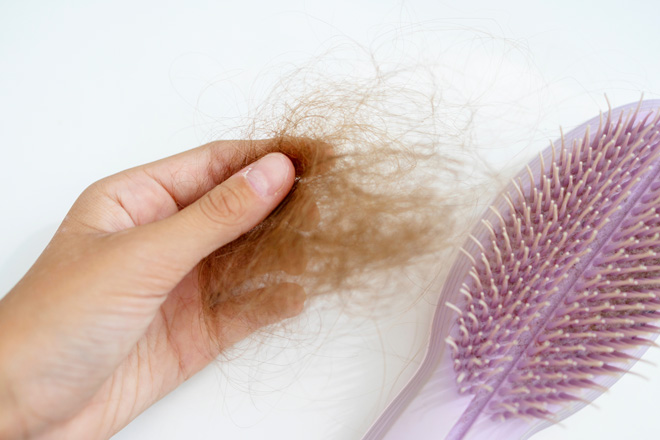
Hair loss, a common concern for many individuals, can be a source of distress and embarrassment, affecting self-esteem and overall well-being. It is important to recognize that hair loss is not a sign of weakness or a cosmetic issue alone; it can stem from various underlying factors and requires proper diagnosis and treatment.
Causes of Hair Loss:
The underlying causes of hair loss are diverse and can range from genetic predisposition to hormonal imbalances and lifestyle factors. Some of the most common causes include:
- Genetics: Androgenetic alopecia, also known as male pattern baldness or female pattern baldness, is the most prevalent cause of hair loss, affecting both men and women. It is primarily determined by genetics and is influenced by testosterone levels.
- Hormonal Imbalances: Hormonal changes, such as those experienced during pregnancy, childbirth, or menopause, can trigger hair loss. Thyroid disorders, polycystic ovary syndrome (PCOS), and other hormonal imbalances can also contribute to hair loss.
- Medical Conditions: Underlying medical conditions such as alopecia areata, an autoimmune disorder that causes patchy hair loss, or scalp infections can lead to hair loss. Certain medications, such as chemotherapy drugs, can also cause hair loss as a side effect.
- Nutritional Deficiencies: Inadequate intake of essential nutrients, particularly iron, zinc, and biotin, can contribute to hair loss. Nutritional deficiencies can disrupt the hair growth cycle and impair hair follicle health.
- Stress and Anxiety: Chronic stress and anxiety can negatively impact hair growth and exacerbate existing hair loss conditions. Stress hormones can interfere with the normal hair growth cycle, leading to hair shedding.
Treatment Options for Hair Loss:
The most effective treatment for hair loss depends on the underlying cause and severity of the condition. Common treatment options include:
- Medications: Minoxidil, an over-the-counter topical solution, is often prescribed for androgenetic alopecia. Finasteride, an oral medication, is approved for male pattern baldness.
- Light Therapy: Low-level laser therapy (LLLT) and red light therapy (RLT) have shown promise in promoting hair growth and strengthening hair follicles.
- Hair Transplantation: For individuals with severe hair loss, hair transplantation involves surgically transplanting hair follicles from one area of the scalp to another.
- Lifestyle Modifications: Adopting a healthy lifestyle, including a balanced diet, regular exercise, and stress management techniques, can support overall hair health and potentially reduce hair loss.
Seeking Professional Guidance:
If you are experiencing hair loss, it is crucial to seek guidance from a dermatologist or trichologist (a hair loss specialist) for an accurate diagnosis and personalized treatment plan. Self-treating hair loss can be ineffective and may even worsen the condition.
Navigating the Emotional Journey:
Hair loss can be a challenging experience, often accompanied by feelings of self-consciousness, anxiety, and frustration. Seeking emotional support from loved ones, joining support groups, and practicing stress management techniques can help individuals cope with the emotional impact of hair loss.
Conclusion:
Hair loss is a common issue with various causes and treatment options. Early diagnosis and personalized treatment are essential for effectively addressing hair loss and promoting hair growth. By seeking professional guidance and adopting a healthy lifestyle, individuals can regain confidence and manage hair loss effectively.
